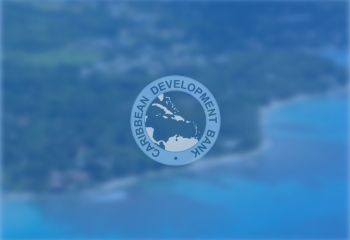Workshop looks at Gender, Climate Change and Monitoring & Evaluation issues in Sanitation Management
The Global Environment Facility-funded-Caribbean Regional Fund for Wastewater Management (GEF-CReW) and the United Nations Environment Programme (UNEP) will collaborate with the Caribbean Development Bank (CDB) and the Caribbean Water and Sewerage Association Inc. (CAWASA) to convene a one-week workshop on Governance and Sanitation in Antigua and Barbuda. The workshop will be held at the Grand Royal Antiguan Beach Resort from 23rd - 27th February, 2015.
This Workshop is a follow-up to an eight-week online course in Governance and Urban Sanitation which was run by the United Nations Institute for Training and Research (UNITAR) and successfully completed by thirty-eight professionals from water and sewerage companies and health ministries, from 17 of the CDB's borrowing member countries. Their participation was funded by the CDB in keeping with its poverty reduction goal and its Climate Resilience Strategy. The online course focused on enhancing the capacity of sanitation professionals in relation to decision-making and investments in the area of urban sanitation. It provided analytical tools to help participants understand the financial and institutional frameworks of the sanitation sector, taking into account the needs of urban poor communities.
This Workshop aims to build additional capacity in areas such as gender; climate change; use of wastewater as a resource; and monitoring and evaluation. Presenters will include experienced wastewater sector specialists who have worked in the areas of gender mainstreaming, climate change, financing, and technology development.
The issue of sanitation and wastewater management in the Caribbean is a very neglected one. The CDB, CAWASA, UNEP and the GEF CReW Project in organizing this workshop, place up front the need to deal with the institutional and financial challenges, gender and climate change issues that affect the sector. Sanitation professionals will be provided with a current overview of the state of the sector in their respective countries as well as with information on the skills and tools used for planning investments and decision-making to help them to identify actions that could contribute to improvements in the sector.
Under GEF CReW's Component 2: Reforms for Wastewater Management, the United Nations Environment Programme's Caribbean Regional Coordinating Unit (UNEP CAR/RCU) based in Kingston, is executing activities to address the limited capacity of water and wastewater utilities and environmental health agencies in the region for effective water and wastewater management. This training will help improve skills and knowledge amongst professionals for water and wastewater management, in turn helping them to improve their countries' compliance with obligations of the Cartagena Convention and its Protocol on Land-Based Sources of Pollution for which UNEP CAR/RCU is the Secretariat.
The CDB stresses that although nearly all of its borrowing member countries have met, or for the most part are on track to meet the Millennium Development Goals sanitation target, the Caribbean Region needs to pay close attention to the United Nation's related campaign, launched in May 2014, which seeks to End Open Defecation at the end of 2015. Data from the World Health Organization and United Nations Children's Fund (UNICEF) Progress on Drinking Water and Sanitation 2014 Update revealed that open defecation occurred in seven of its borrowing member countries in 2012 compared with ten in 1990.
Wastewater management is considered a critical issue at the global level, as is the need to have a shared vision that can be used as the framework for developing national and regional wastewater management policies. This global recognition is lead by the United Nations Secretary General Advisory Board on Water and Sanitation (UNSGAB) and UN-Water. At Rio+20 it was stressed that there is an urgent "need to adopt measures to significantly reduce water pollution and increase water quality, significantly improve wastewater treatment and water efficiency and reduce water losses" and "reuse of treated wastewater". UN Water and its partners further defined a global water goal as "securing sustainable water for all." The post-2015 agenda can only be achieved if countries are approaching the management of water collaboratively with other sustainable development goals.
Increasing population, insufficiently planned development and poorly functioning sewage treatment facilities, result in the continued discharge of untreated domestic wastewater into drains, rivers and coastal areas. This negatively impacts both human health and the environment. Changing this situation will require Caribbean countries to make the issue of sanitation and wastewater management a greater priority. Training professionals in the sector, the goal of this Workshop, is both necessary and of increasing urgency.
Source: GEF-CReW media announcement


